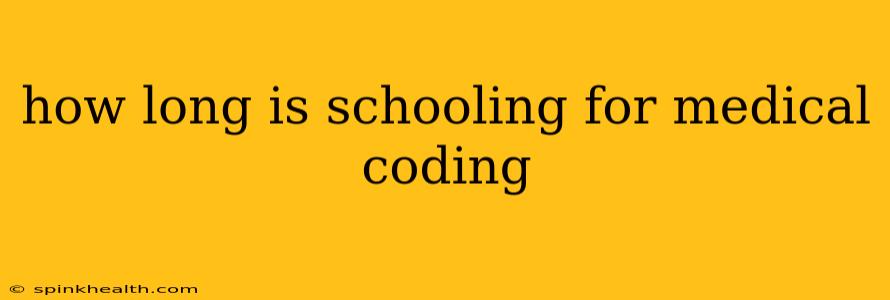How Long is Schooling for Medical Coding? The Journey to a Rewarding Career
The path to becoming a certified medical coder isn't a one-size-fits-all journey. The length of schooling depends on several factors, making it more of a personalized adventure than a fixed timeframe. Think of it like this: some hikers prefer a challenging, fast-paced climb, while others enjoy a more leisurely, scenic route. Both reach the summit, but the experience is distinctly different.
Let's explore the various paths and timelines you might encounter on your journey to a medical coding career:
Different Paths, Different Timelines
1. Certificate Programs: For many, a certificate program represents the fastest route. These programs typically focus on the core competencies needed for entry-level medical coding jobs. They are often completed in 6 to 12 months, depending on the intensity of the program (full-time vs. part-time) and the specific curriculum. Think of it as a focused sprint—intense but efficient.
2. Associate's Degree Programs: Offering a broader foundation, an associate's degree in health information technology or a related field provides a more comprehensive education. These programs usually take two years to complete, allowing for a deeper dive into medical terminology, anatomy, physiology, and other relevant subjects. This is like a well-paced hike—steady progress with ample time to absorb the information.
3. Bachelor's Degree Programs: While less common as a direct path to entry-level medical coding, a bachelor's degree offers the most extensive educational preparation. It can equip you with advanced skills and knowledge, potentially opening doors to more specialized or leadership roles in the future. This journey typically takes four years, akin to a long-distance trek, rewarding you with a broader perspective and enhanced expertise.
What Factors Influence the Duration?
-
Program Intensity: Full-time programs generally conclude faster than part-time programs. Your personal schedule and commitment level will dictate which pace is best suited for you.
-
Prior Education: If you already possess relevant coursework in healthcare or related fields, you might find that certain program requirements are waived or shortened, accelerating your completion time.
-
Learning Style: Some individuals grasp concepts quickly, allowing them to progress faster through the curriculum. Others might require more time for focused study and practice.
-
Program Accreditation: Ensure that your chosen program is accredited by a recognized body like the Commission on Accreditation for Health Informatics and Information Management Education (CAHIIM). Accreditation can influence both the program's curriculum and its recognition by employers.
Is Online Learning an Option?
Yes! Many reputable institutions offer online medical coding programs. This flexibility can be particularly beneficial for individuals balancing work, family, or other commitments. However, ensure the online program aligns with your learning style and offers sufficient interaction and support.
How Long Does It Take to Get Certified?
Once you complete your education, you'll likely pursue certification from organizations like the American Academy of Professional Coders (AAPC) or the American Health Information Management Association (AHIMA). These certifications usually require passing a comprehensive exam. The study time for this exam varies based on individual preparation and the chosen certification path.
In Conclusion:
The length of schooling for medical coding isn't a fixed number. It's a journey tailored to your individual circumstances and aspirations. Whether you opt for a quick certificate program or a more extensive degree, the commitment and effort you invest will shape your success in this rewarding career field. Remember to research different programs thoroughly, considering factors like program accreditation, curriculum, learning style, and personal circumstances, to find the perfect path for you.

